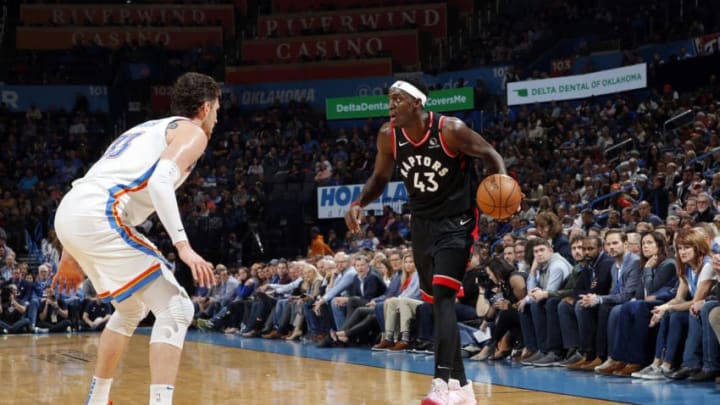Bad habits punctuate OKC Thunder loss to Raptors: 3 key takeaways

Bad habits rear their ugly head:
Although the third quarter has drawn attention from pundits the frame which needs to be cleaned up is the first quarter. Allowing teams to jump on you from the tip and resulting in playing from behind the entirety of the match isn’t a winning proposition.
Sure, the OKC Thunder are the kings of clutch time but they are fighting a losing battle since the effort it takes to erase big leads is physically draining and leaves the team spent in those closing minutes.
It’s simply a matter of focus and aggression and the team needs to accept that fact and make the change.
In fairness, we also need to tip our hats to Toronto who’ve played since game 7 of this season missing a minimum of one starter (usually two) and still were without Fred VanVleet last night. That the Raptors entered the night with the second-ranked defense in the NBA speaks to the depth of talent on the squad and they accomplished that missing arguably their two best defenders (Siakam, Gasol).
Based on the team falling behind by up to 30 points it forced the Thunder to take more perimeter shots to cut the deficit. Taking 42 triples isn’t something OKC typically do or should want to do. OKC connected on 16 but in contrast, the Raptors hit 15 but did so on just 27 attempts.
Because the Thunder had to play with aggression it also meant the club was pushing the envelope which resulted in 20 turnovers leading to 32 points for the opposition. That’s something else they don’t typically do as they average 14.0 turnovers on the season, ranking ninth in the NBA.
On the opposite side of the equation, they did force 19 Toronto turnovers which resulted in 33 points for OKC.
Still, this situation wasn’t ideal and isn’t something they want to replicate.
Moving forward, the OKC Thunder should look to capitalize on games where they play sub .500 teams to break these bad habits, especially the start of games and third quarters.
They have the talent and ability to make these commitments and a loss to the second-best defense in the NBA (and prior to all the injuries top-five offense) isn’t a reason to stop improving. Rather, it was a great lesson for the club on ways they can grow and what it will take to enter the upper echelon.